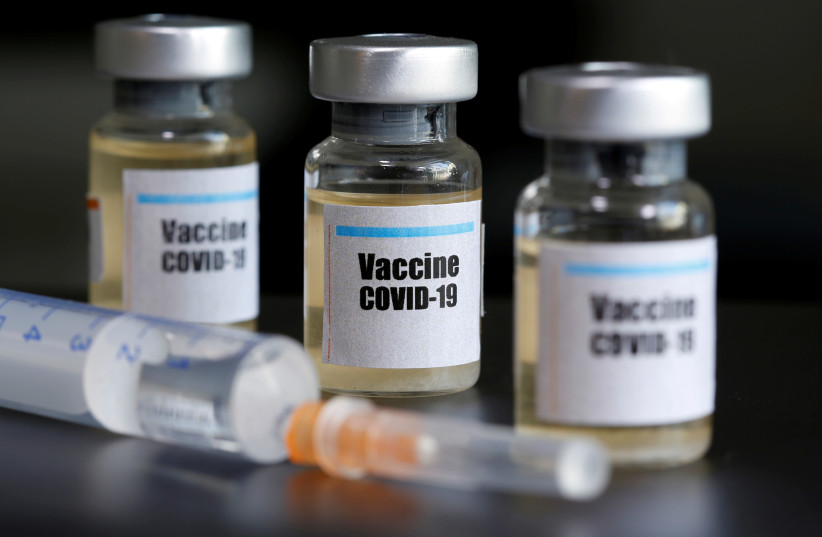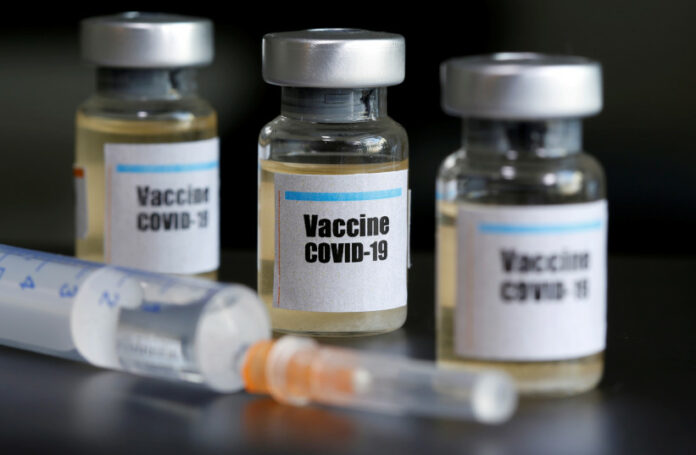The oral poliovirus vaccine has a proven track record, relatively affordable cost, easy administration method and widespread availability.

Small bottles labeled with a “Vaccine COVID-19” sticker and a medical syringe are seen in this illustration
(photo credit: REUTERS/ DADO RUVIC)
While scientists around the world race to develop a vaccine for the novel coronavirus, some suggest that existing polio vaccines could be used as an effective and affordable means of protecting against the pandemic, according to a report in Science magazine.
The team of researchers – including Konstantin Chumakov, associate director for research at the FDA’s vaccine division, and Dr. Robert Gallo, a researcher from the Institute of Human Virology at the University of Maryland School of Medicine, who helped discover HIV – discussed existing live attenuated vaccines that could, according to some experts, induce protection against unrelated diseases – specifying the oral poliovirus vaccine (OPV) in particular as a possibility.
The vaccine was developed in the 1950s by Albert Sabin, offering protection against polio. However, according to earlier clinical studies, the vaccine may have also protected patients against other conditions. For instance, the paper cites observations made in Bangladesh where OPV was shown to reduce the effects of bacterial diarrheal disease in infants. Another study in Finland showed that using OPV resulted in fewer doctor-diagnosed middle ear infections, and a retrospective study from Denmark showed that OPVs were associated with reduced hospital visits by children with respiratory infections.
The vaccine has a proven track record, and has already succeeded in nearly eliminating polio worldwide.
But the OPV has other advantages over other existing live vaccines. For example, like the coronavirus, poliovirus is a positive-strand RNA virus. As a result, the researchers say it is more likely that OPV could induce common innate immunity mechanisms for the coronavirus.
Other advantages for OPV are its safety record, its relatively affordable cost, its easy administration method and its widespread availability. While it is no longer licensed or available in the US, over 1 billion OPV doses are produced yearly and are used in over 140 countries worldwide.
The team added that the risk of complications from OPV is very low. While it is possible that it could cause complications similar to polio, this would only happen in about one in every 3 million doses, and even then, it largely only occurs in immunocomproised children.
In addition, the researchers even go so far as to say that a nonspecific vaccine like OPV would be preferable not only to other live vaccines but to a coronavirus-specific vaccine, as it could help prevent the spread of the virus even if it undergoes a mutation similar to the seasonal flu, which necessitates new vaccines yearly.
The coronavirus pandemic, which started in Wuhan, China, at the end of 2019, has since spread across the world. Millions of people have since been infected, including over 2 million in the US alone, and the death toll currently sits in the hundreds of thousands.






